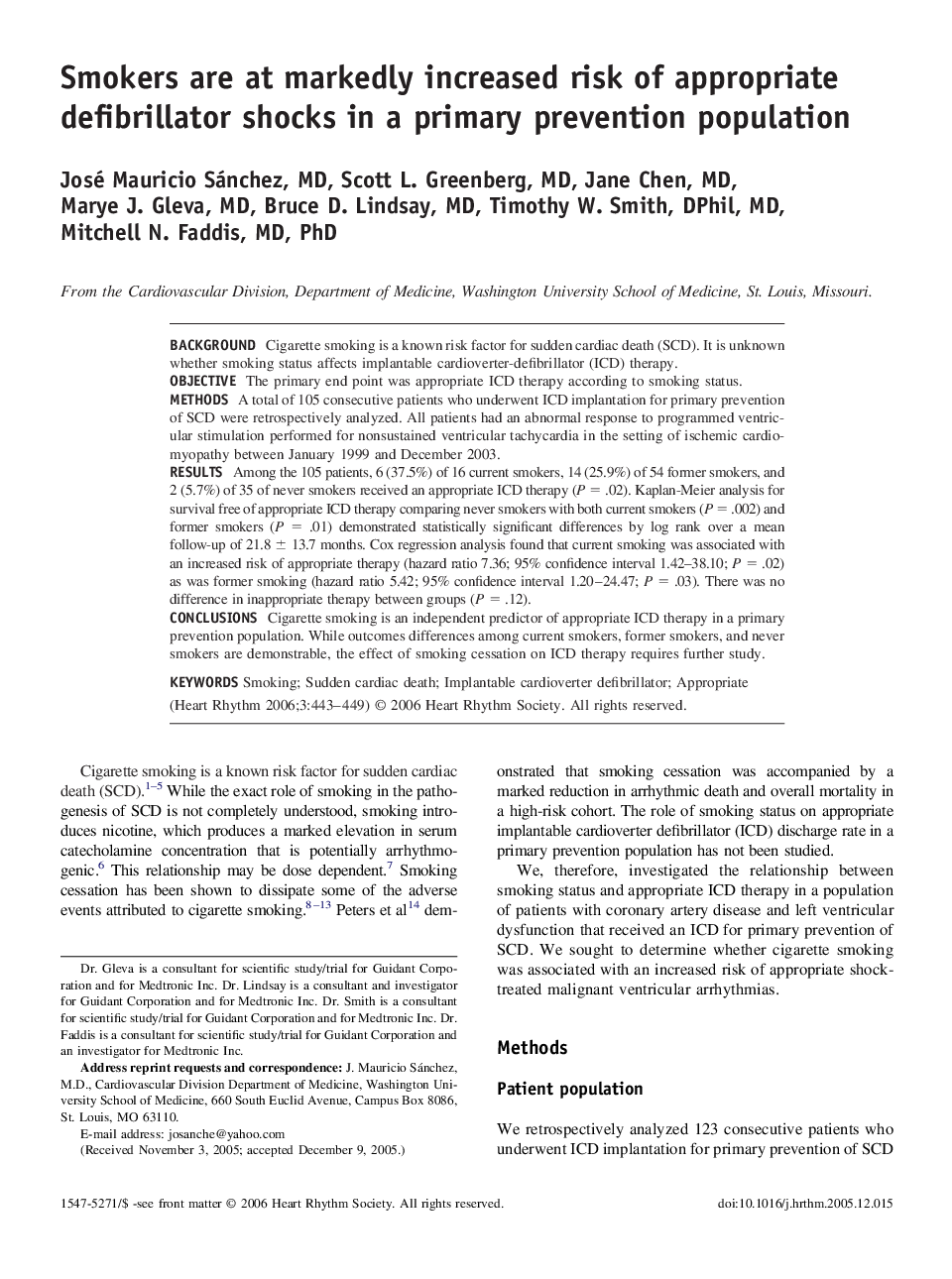| Article ID | Journal | Published Year | Pages | File Type |
|---|---|---|---|---|
| 2925272 | Heart Rhythm | 2006 | 7 Pages |
BackgroundCigarette smoking is a known risk factor for sudden cardiac death (SCD). It is unknown whether smoking status affects implantable cardioverter-defibrillator (ICD) therapy.ObjectiveThe primary end point was appropriate ICD therapy according to smoking status.MethodsA total of 105 consecutive patients who underwent ICD implantation for primary prevention of SCD were retrospectively analyzed. All patients had an abnormal response to programmed ventricular stimulation performed for nonsustained ventricular tachycardia in the setting of ischemic cardiomyopathy between January 1999 and December 2003.ResultsAmong the 105 patients, 6 (37.5%) of 16 current smokers, 14 (25.9%) of 54 former smokers, and 2 (5.7%) of 35 of never smokers received an appropriate ICD therapy (P = .02). Kaplan-Meier analysis for survival free of appropriate ICD therapy comparing never smokers with both current smokers (P = .002) and former smokers (P = .01) demonstrated statistically significant differences by log rank over a mean follow-up of 21.8 ± 13.7 months. Cox regression analysis found that current smoking was associated with an increased risk of appropriate therapy (hazard ratio 7.36; 95% confidence interval 1.42–38.10; P = .02) as was former smoking (hazard ratio 5.42; 95% confidence interval 1.20–24.47; P = .03). There was no difference in inappropriate therapy between groups (P = .12).ConclusionsCigarette smoking is an independent predictor of appropriate ICD therapy in a primary prevention population. While outcomes differences among current smokers, former smokers, and never smokers are demonstrable, the effect of smoking cessation on ICD therapy requires further study.
